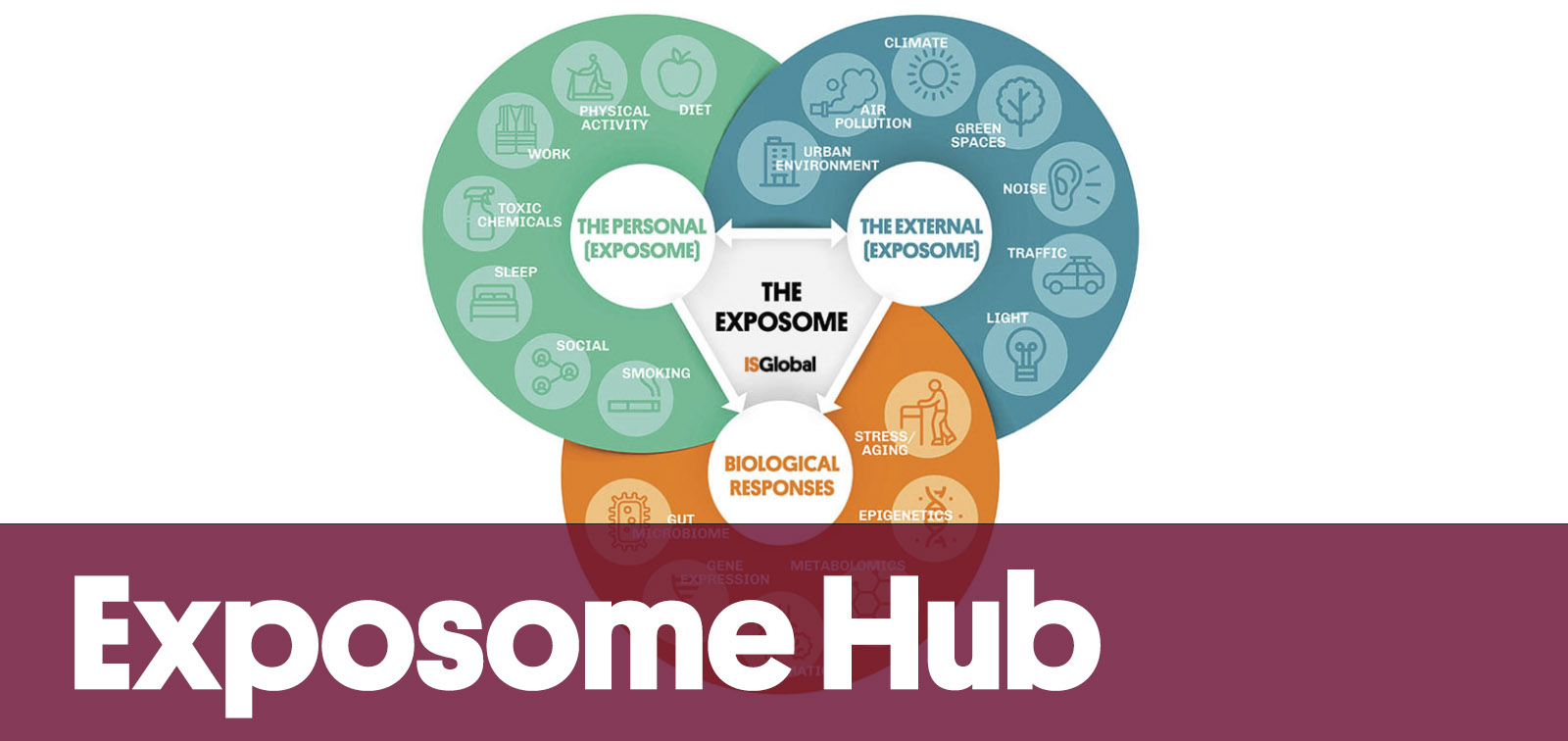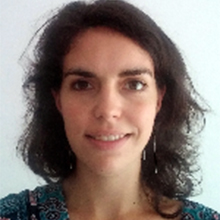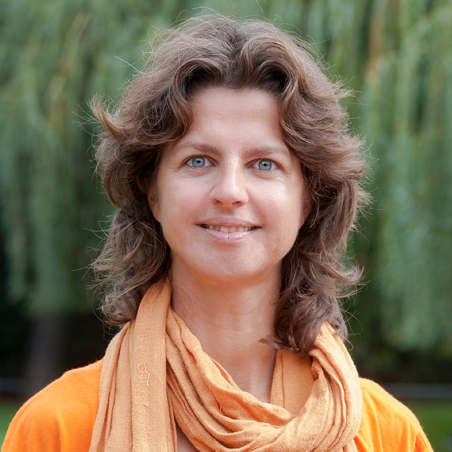Introducció al hub
L’Exposome Hub d’ISGlobal té com a objectiu reunir una xarxa d’investigadors dels diferents programes de recerca d’ISGlobal i més enllà per continuar desenvolupant eines i mètodes innovadors per a l’estudi de múltiples riscos ambientals i els seus efectes sobre la salut.
Organitzem seminaris mensuals amb persones expertes convidades que se centren en temes específics (per exemple, exposoma i salut cerebral, l’exposoma social, exposoma en països de renda baixa i mitjana). Aquestes sessions tenen lloc un dijous al mes, de 12 a 13 h (CET), i estan pensades per ser compartides entre investigadors que treballen en àrees relacionades. A més, organitzem cursos i tallers online de manera regular (més informació a continuació).
Tot i que el hub està basat a ISGlobal, també està obert a personal investigador d’altres institucions, afavorint la col·laboració i la creació de vincles tant dins com fora d’ISGlobal.
Com unir-se el hub
Si vols unir-te al Hub, omple aquest formulari. En registrar-te, rebràs invitacions als nostres seminaris mensuals i també el butlletí informatiu, que s’envia cada mes o cada dos mesos i inclou informació sobre propers congressos, tallers, ofertes de feina i les últimes publicacions en l’àmbit de l’exposoma.
La importància de l'exposoma en la recerca
Els riscos ambientals representen probablement una proporció important, però encara poc caracteritzada, de la càrrega global de malaltia. L’exposoma, definit com "la totalitat d’exposicions ambientals humanes des de la concepció", reconeix que les persones estan exposades simultàniament a múltiples factors ambientals, i adopta un enfocament holístic per identificar els factors etiològics de la malaltia.
L’avantatge principal de l’exposoma respecte als enfocaments tradicionals d'“una exposició, una malaltia” és que ofereix un marc conceptual sense precedents per estudiar múltiples riscos ambientals (urbans, químics, relacionats amb l’estil de vida o socials) i els seus efectes combinats.
La definició més recent el descriu com una recopilació integrada de tots els factors físics, químics, biològics i psicosocials —i les seves interaccions— que influeixen en la biologia i la salut, segons la Xarxa Internacional de l’Exposoma Humà (IHEN).
Promeses de l’exposoma
- Holístic → Sistemes complexos, múltiples exposicions, mescles.
- Al llarg de la vida → Seqüència temporal.
- Noves eines i tecnologies → Millora en la cobertura i precisió de les exposicions (òmiques, sensors, etc.).
- Exposoma intern → Respostes biològiques primerenques.
- Descobriment no dirigit → Identificació d’exposicions desconegudes.
El rol d'ISGlobal en la recerca de l'exposoma
ISGlobal s’ha consolidat a l’avantguarda de la recerca internacional sobre l’exposoma gràcies a la coordinació i participació en diversos grans projectes internacionals d’exposoma finançats per la Comissió Europea (veure projectes).
El Exposome Research Hub d’ISGlobal reuneix una xarxa interdisciplinària d’investigadors dels següents programes:
Això té com a objectiu promoure l’excel·lència, la innovació i la col·laboració en la recerca sobre l’exposoma, així com satisfer les necessitats formatives dels investigadors en aquest camp.
Grans projectes d’exposoma a ISGlobal
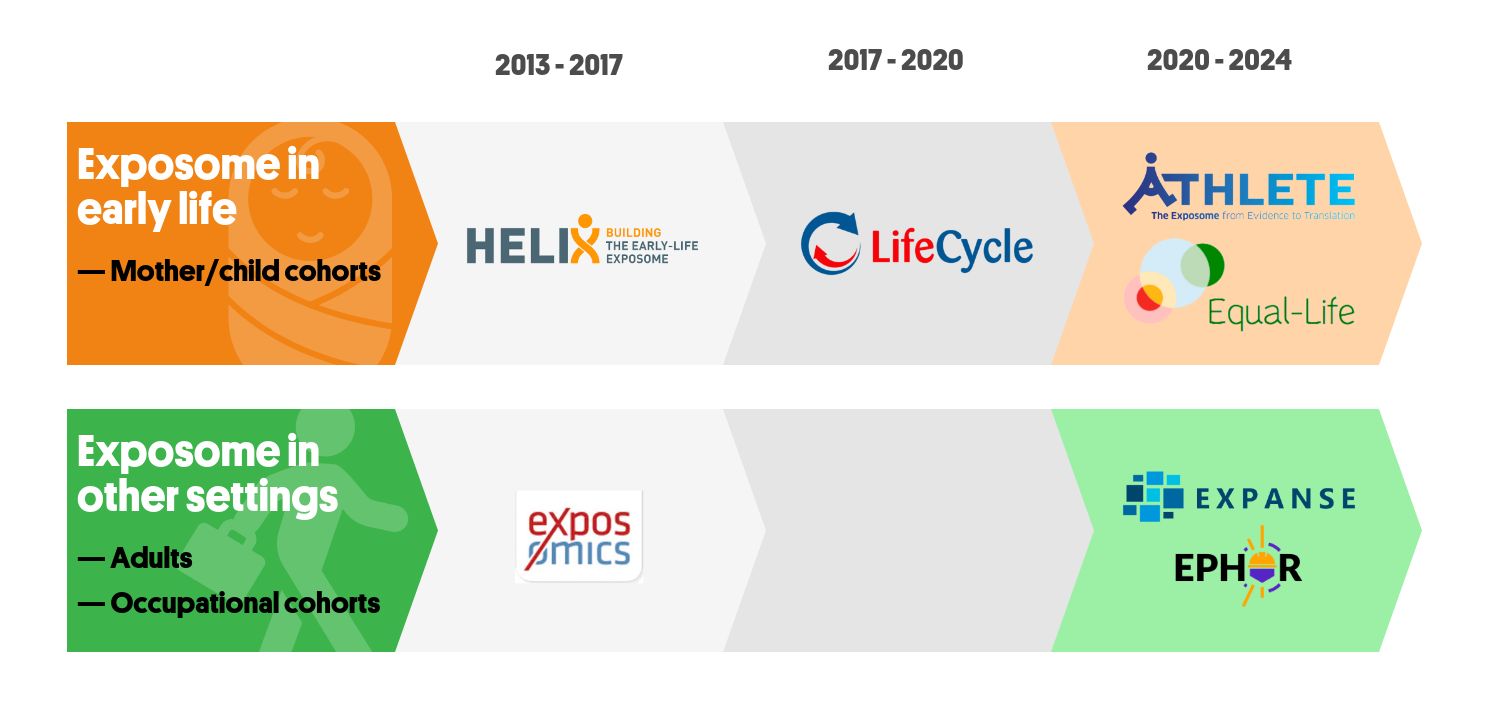
Línies de recerca als programes d'ISGlobal
- Exposoma intern: exposicions químiques i disruptors endocrins.
- Exposoma extern: entorn urbà (per exemple, contaminació de l'aire, soroll, entorn construït incloent-hi els espais verds); caracterització de l’exposició amb SIG; i modelització i mesura de les exposicions.
- Exposoma en l'àmbit laboral: harmonització de l’avaluació d’exposicions ocupacionals a Europa (EuroJEM).
- Respostes biològiques / exposoma intern: estudiades mitjançant tecnologies òmiques, epigenètica, transcriptòmica, proteïnes inflamatòries, càrrega alostàtica, envelliment accelerat, microbioma intestinal i metabolòmica.
- Implementació i harmonització de cohorts: mega-cohorts per a salut laboral, cohorts longitudinals mare-fill, cohorts d’adults i mega-cohorts amb dades administratives.
- Exposició i salut: salut mental i neurodesenvolupament, salut cardiometabòlica, obesitat i salut respiratòria.
- Bioinformàtica per a la integració multiòmica i l’anàlisi de dades federades (anàlisis quan les dades es troben en bases de dades federades o, en general, en diferents repositoris, per exemple, DataSHIELD).
- Modelització avançada de dades per a barreges d’exposicions i inferència causal.
- Caracterització de l’aire en entorns urbans i rurals: determinació de les propietats físiques de les partícules (de gruixudes a ultrafines) i anàlisi de la seva composició química (metalls, no metalls, etc.) i biològica (bacteris, fongs, virus). AIRLAB: laboratori central de referència.
Recursos i esdeveniments anteriors
- Sèrie de tallers: Integració de dades multi-òmiques en estudis de l’exposoma humà – Enllaç als materials (nov–des 2024)
- Simpòsium de l’Exposoma de Barcelona (set 2024)
- Repte d’Anàlisi de Dades de l’Exposoma: mètodes d’avantguarda (2021)
- Exposome Toolbox: col·lecció seleccionada d’eines de recerca sobre exposoma de la International Human Exposome Network (IHEN)
- Catàleg Europeu de Dades i Mostres per a la Recerca en Salut: un esforç col·laboratiu per integrar els catàlegs de diversos projectes i xarxes de recerca de la UE, amb l’objectiu d’accelerar-ne la reutilització i millorar la salut de la ciutadania
Per saber-ne més
Segueix els nostres seminaris híbrids i subscriu-te al butlletí del hub (consulta les edicions anteriors):
Uneix-te a la Xarxa Internacional de l’Exposoma Humà (IHEN).
Més informació
Uneix-te a la conversa a les xarxes socials
Segueix i fes servir l’etiqueta #ISGlobalexposome per descobrir les publicacions del nostre equip i compartir-hi les teves reflexions.
Our Team
Coordinadora del Hub
-
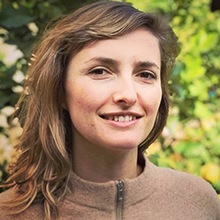 Lea Maitre Assistant Research Professor
Lea Maitre Assistant Research Professor
Project Manager del Hub
-
 Sara Stanulovic Project Manager
Sara Stanulovic Project Manager
Comitè del Hub
-
 Payam Dadvand Research Professor
Payam Dadvand Research Professor -
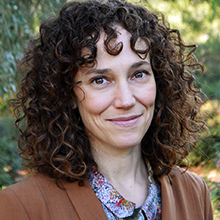 Cathryn Tonne Research Professor
Cathryn Tonne Research Professor -
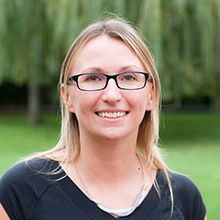 Michelle Turner Associate Research Professor
Michelle Turner Associate Research Professor -
 Martine Vrijheid Research Professor i directora del Programa de Medi ambient i salut al llarg de la vida
Martine Vrijheid Research Professor i directora del Programa de Medi ambient i salut al llarg de la vida
Projectes
YEAH!
Youth hEAlth from a Holistic perspective
ENDOMIX
Understanding how endocrine disruptors and chemical mixtures of concern target the immune system to trigger or perpetuate disease
EXOMAIR
Hacia una Medicina de Precisión: Análisis del Exposoma y Omicas usando Inteligencia Artificial Explicable para estudiar su impacto durante la vida en la Obesidad, Insulino Resistencia y salud metabólica
IHEN
International Human Exposome Network
ATHLETE
Advancing Tools for Human Early Lifecourse Exposome Research and Translation


